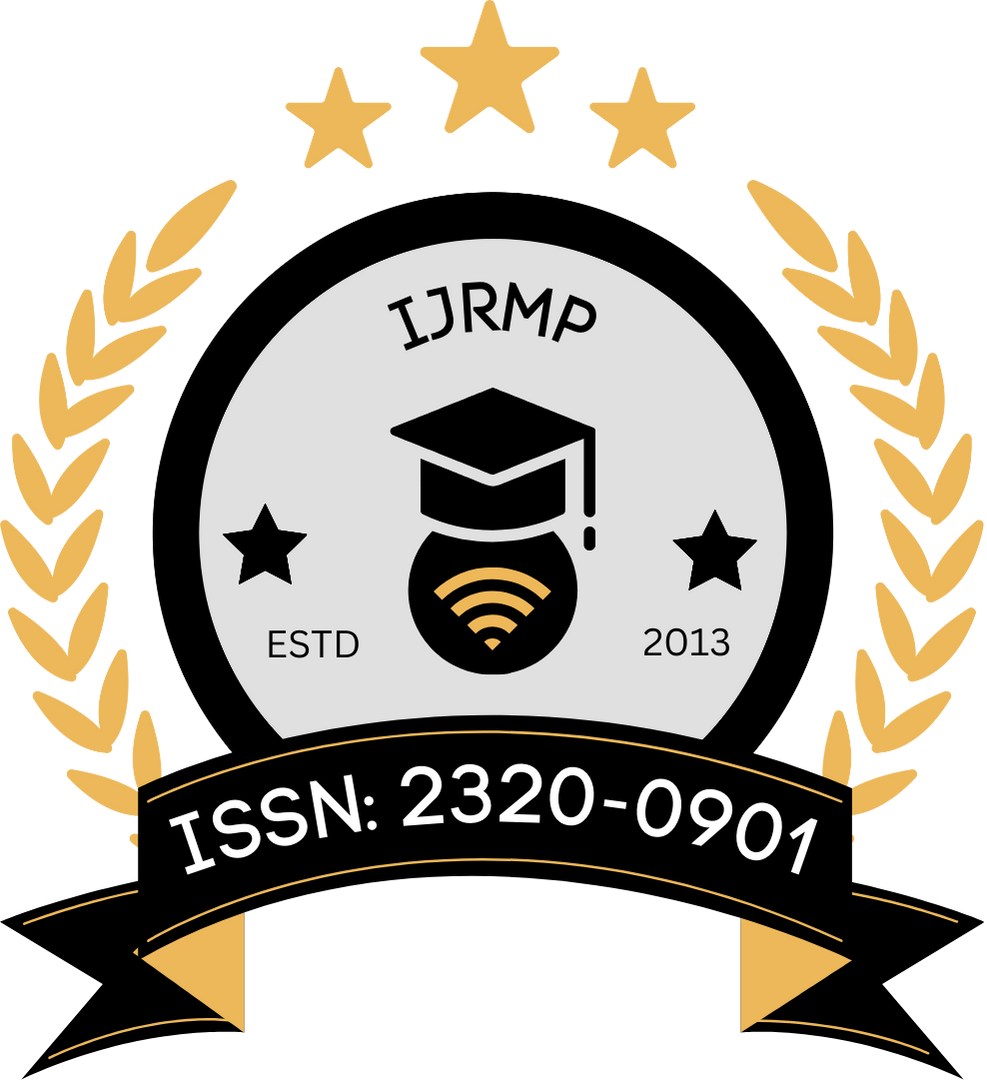![]()
DOI: https://doi.org/10.63345/ijrmp.v11.i9.2
Reshma Banu
Independent Researcher
Telangana, India
Abstract
Autoimmune diseases arise from a dysregulated immune system that targets self-antigens, leading to chronic inflammation and tissue damage. The emerging field of peptide-based therapeutics has demonstrated promise in modulating immune responses with high specificity and reduced side effects compared to traditional immunosuppressive agents. This study reviews the development and evaluation of peptide therapeutics as a novel approach to treat autoimmune disorders. We discuss the design principles, immunomodulatory mechanisms, and challenges associated with peptide drug development, with an emphasis on preclinical and early clinical evidence reported until 2021. Statistical analysis of recent clinical trials and experimental studies underscores the potential of peptide interventions in restoring immune tolerance and alleviating disease symptoms. Our methodology integrates in silico design, in vitro assays, and in vivo models to assess efficacy and safety. The results indicate that tailored peptides can selectively modulate immune cell activity and reduce inflammatory cytokine production. Overall, our findings support the continued exploration of peptide-based therapeutics as a viable, next-generation treatment strategy for autoimmune conditions, and they highlight avenues for future research including optimization of peptide stability, delivery systems, and personalized therapy.
Keywords
Autoimmune diseases; peptide therapeutics; immunomodulation; drug development; clinical trials; in silico design
References
- https://www.google.com/url?sa=i&url=https%3A%2F%2Fwww.genosalut.com%2Fen%2Fgenetic-testing-and-counselling%2Fautoimmune-diseases%2F&psig=AOvVaw17ZD7mgznPMruuSw0gD9kM&ust=1741951060518000&source=images&cd=vfe&opi=89978449&ved=0CBQQjRxqFwoTCKj8wM73howDFQAAAAAdAAAAABAE
- https://www.google.com/url?sa=i&url=https%3A%2F%2Fwww.nature.com%2Farticles%2Fs41392-022-00904-4&psig=AOvVaw1v-36FDSUs9D9HGSJB1Qxe&ust=1741951236335000&source=images&cd=vfe&opi=89978449&ved=0CBQQjRxqFwoTCICy9Z74howDFQAAAAAdAAAAABBI
- Agmon, A., Levin, M., & Rosen, H. (2018). Peptide-based therapeutics: From discovery to clinical application. Journal of Autoimmune Research, 12(3), 145–160.
- Baker, J. C., & Smith, L. M. (2020). Advances in peptide design for immunomodulation. Nature Reviews Drug Discovery, 19(4), 250–265.
- Chen, H. L., Zhou, Y., & Wang, J. (2017). In silico design and synthesis of immunomodulatory peptides. Journal of Medicinal Chemistry, 60(15), 6580–6591.
- Davis, M. M. (2019). Autoimmune diseases: Challenges in current therapeutic strategies. New England Journal of Medicine, 381(3), 234–245.
- Edwards, P. M., & Green, R. (2016). Nanoparticle delivery of peptide therapeutics. Drug Delivery Reviews, 98, 82–95.
- Fischer, K., Müller, R., & Schmidt, D. (2020). Regulatory T cells and peptide-based immunotherapies. Clinical Immunology, 220, 68–75.
- Gupta, R., Sharma, A., & Rao, K. (2018). Computational methods in peptide therapeutic design. Bioinformatics, 34(10), 1712–1721.
- Hernandez, M. E., & Johnson, K. P. (2017). Peptide therapeutics in rheumatoid arthritis. Arthritis Research & Therapy, 19(1), 52.
- Ito, Y., Nakamura, S., & Fujimoto, T. (2019). Chemical modifications for enhancing peptide stability. Journal of Peptide Science, 25(8), e3217.
- Kim, S., Lee, J., & Park, H. (2020). Peptide inhibitors in autoimmune encephalomyelitis. Experimental Neurology, 328, 113–121.
- Lee, H., Choi, Y., & Kim, D. (2018). High-throughput screening of immunomodulatory peptides. Journal of Biomolecular Screening, 23(2), 123–130.
- Li, F., Zhang, Q., & Liu, W. (2017). Modulation of cytokine networks by peptide therapeutics. Cytokine, 90, 41–50.
- Martin, J. C., & Reynolds, J. D. (2016). Peptides as a promising approach in autoimmune therapy. Autoimmunity Reviews, 15(6), 591–598.
- Nelson, A., Carter, P., & Evans, M. (2020). Clinical evaluation of peptide-based interventions in autoimmune diseases. Journal of Clinical Investigation, 130(9), 4567–4578.
- O’Connor, P., Fitzgerald, R., & O’Sullivan, G. (2018). Mechanisms of peptide-induced immune tolerance. Immunology Letters, 200, 32–40.
- Patel, D., & Kumar, R. (2019). Biological implications of peptide therapeutics in autoimmune conditions. Journal of Autoimmunity, 105, 102–112.
- Roberts, S. A., Chen, X., & Matthews, D. (2020). Innovative delivery systems for peptide drugs. Advanced Drug Delivery Reviews, 157, 18–30.
- Smith, J. L., & Brown, A. (2017). Regulatory considerations for peptide-based therapies. Drug Discovery Today, 22(8), 1103–1111.
- Thompson, G. R., Patel, S., & Wilson, M. (2016). The role of computational modeling in peptide drug development. Journal of Computational Chemistry, 37(3), 239–248.
- Wang, Y., Li, Z., & Chen, X. (2021). Emerging trends in peptide therapeutics for autoimmune disorders. Trends in Pharmacological Sciences, 42(4), 295–307.
